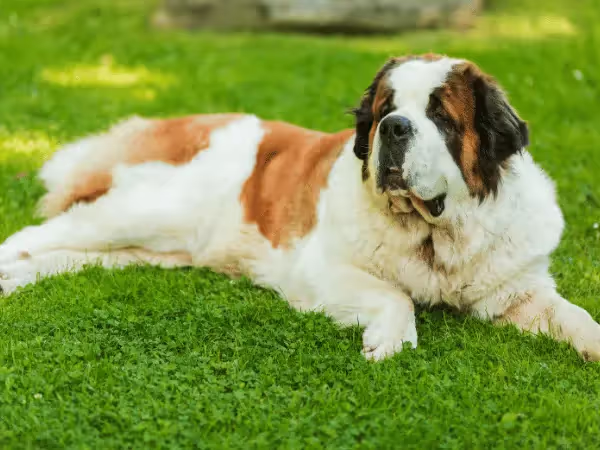Noticing a bloated abdomen in a dog is concerning for any pet parent. While it may sometimes be caused by something minor like mild gas, it can also indicate a more serious condition like bloat in dogs, also known as gastric dilatation. This condition can escalate quickly into life-threatening gastric dilatation-volvulus (GDV).
In this Sploot Vets guide, we talk about what is bloat in dogs, the signs and symptoms of bloat in dogs, and what you can do to prevent or treat this medical issue.

I. What is Bloat in Dogs
Bloat in Dogs (Gastric Dilatation)
Bloat in dogs, medically called gastric dilatation, occurs when the stomach becomes distended with gas, food, or fluid. This expansion can cause discomfort, pressure on internal organs, and difficulty breathing.
What is the Difference: Bloat vs. GDV
In some cases, gastric dilatation or bloat in dogs can progress to gastric dilatation-volvulus (GDV), where the stomach twists, cutting off blood flow and trapping gas—this is a canine veterinary emergency because it can lead to shock, organ damage, or death in just a matter of hours.
II. What Causes Bloat in Dogs
Gastric dilatation or bloat in dogs can happen for several reasons, including:
- Eating or drinking too quickly – Rapid consumption leads to swallowing large amounts of air (aerophagia), which can cause the stomach to expand with gas.
- Large meals – Even just one large meal can overload the stomach, stretching it and trapping gas inside.
- Intense exercise – Physical activity can cause the stomach to move and shift, increasing the chance of gas buildup, potentially leading to bloat in dogs.
- Stress or anxiety – Nervous or competitive eating can cause faster gulping of food and air.
- Dietary factors – Certain kibble types, high-fat diets, or fermentable ingredients can produce more gas during digestion, contributing to bloat in dogs.
What Breed Of Dog Is Prone To Bloat?
Deep-chested breeds typically have a chest that extends down to or even below their elbows when standing. A few examples of deep-chested dog breeds include:
- Sighthounds: Afghan Hound, Borzoi, Irish Wolfhound
- Hounds: Basset Hound, Bloodhound
- Giant Breeds: Great Dane, Mastiff, Saint Bernard, Newfoundland
- Working Dog Breeds: Bernese Mountain Dog, Rottweiler, Doberman Pinscher
- Herding Breeds: Belgian Malinois, Collie, Old English Sheepdog, Golden Retriever, Labrador Retriever
- Other Breeds: Dalmatian, Standard Poodle, large Poodle mixes,
Will A Dog Survive Bloat?
Mild gastric dilatation or bloat in dogs can resolve with veterinary care before progressing to GDV. However, if GDV develops, urgent veterinary surgery is often required for survival.
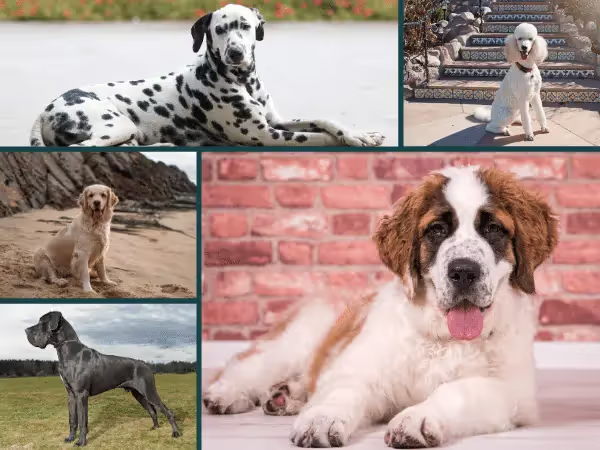
III. Signs & Symptoms of Bloat in Dogs
How Do I Tell If My Dog Has Bloat?
Watch out for the following signs and symptoms of bloat in dogs:
- Noticeably swollen abdomen.
- Unproductive attempts to vomit.
- Excessive drooling.
- Signs of discomfort or pain (e.g., restlessness, whining, pacing).
- Rapid breathing or panting.
Note: If any of the above symptoms appear and escalate into more severe symptoms (i.e., distress or pain, collapse, inability to stand, pale/blue gums), it’s likely that bloat has progressed to GDV. Call an emergency vet immediately.
How Soon Do Bloat Symptoms Start?
Symptoms can develop within 2 to 3 hours after a triggering event like overeating. If you notice any of the above symptoms, we recommend getting in touch with an urgent care vet.
What Can Be Mistaken For Dog Bloat?
Overeating, mild gas, or intestinal blockages can mimic early bloat symptoms; however, urgent veterinary evaluation is the only safe way to tell.
Note: If you are noticing one or more of the above signs of bloat in dogs, we’re here to help. Sploot Vets is a provider of urgent and emergency vet services in Colorado Springs, Denver, & Chicago. Our vet clinics are open 365 days a year, with extended clinic hours (8 AM to 8 PM). Call us for next steps→
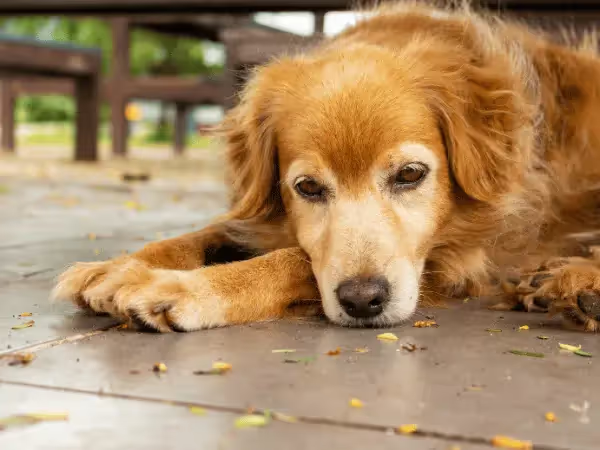
IV. How to Relieve Bloat in Dogs
When Should I Worry About My Dog Being Bloated?
Any sudden, unexplained abdominal swelling with or without signs of dog pain warrants urgent veterinary care.
What to Do If Your Dog Has Bloat
Even what appears to be a mild case of gastric dilatation or bloat should be taken seriously. We recommend pet parents take the following steps. Here’s how to relieve bloat in dogs:
- Contact an urgent care or emergency veterinarian immediately. Even if you are uncertain whether or not your dog has bloat, it’s always best to check with a vet.
- Avoid giving any food, water, or medications until your dog is evaluated. Home remedies can make the situation worse.
- Allow your dog to rest comfortably in a quiet, calm environment while waiting for the next steps. Unnecessary stress or excitement might worsen their condition.
- Once at the vet, your dog will be assessed through a physical examination, checking for abdominal distension, pain, and vital signs.
- The veterinarian may also perform veterinary imaging tests, such as X-rays, to determine if the bloat is simple gastric dilatation or has progressed to gastric dilatation-volvulus or GDV.
- The vet may use a stomach tube to release gas or recommend further treatment if GDV is suspected. If bloat has escalated to GDV, surgical correction and gastropexy (to prevent recurrence) may be recommended.
Note: Faced with severe bloat symptoms or GDV in dogs? Sploot Vets is here to help. We provide urgent and emergency vet services in Colorado Springs, Denver, & Chicago. Our vet clinics are open daily, with extended clinic hours (8 AM to 8 PM). Call us for next steps→
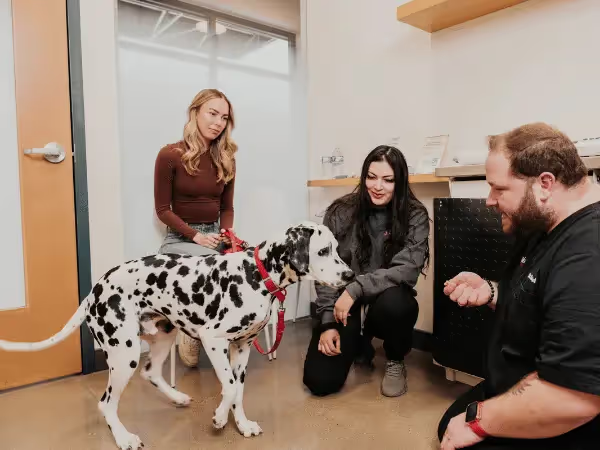
V. How to Prevent Bloat in Dogs
Keep your dog healthy, happy, and bloat-free with these canine bloat prevention tips:
- Feed smaller, more frequent meals.
- Use slow-feeder bowls.
- Limit vigorous activity around mealtime.
- Reduce stress during feeding.
- For high-risk breeds, discuss prophylactic gastropexy with your vet.
Note: Prophylactic gastropexy is a type of veterinary surgery in which the dog's stomach is attached to the abdominal wall to help prevent it from twisting during bloat or gastric dilatation, thereby helping to prevent GDV. It is generally safe and commonly performed, but individual assessment by a trusted vet is recommended.
Final Thoughts on Bloat in Dogs
Bloat in dogs, whether mild gastric dilatation or life-threatening GDV, is a condition that should never be ignored. Understanding the risk factors, early warning signs, and preventive measures are crucial for your pup’s well-being and safety.
Sploot Vets: Urgent Care & Emergency Vet Services for Dogs
Need an urgent or emergency vet visit to treat bloat in dogs? Sploot Veterinary Care is here to help! Our vet clinics in Chicago, Denver, and Colorado Springs offer next-level, all-in-one vet care, including primary care, urgent care, and emergency vet services, all under one woof™.
With our unparalleled availability, you can count on us! Our vet clinics are open 365 days a year for extended hours (8 AM to 8 PM).
With our team of experienced vets and modern clinic facilities, you can be sure that your dog gets life-saving, top-tier care. Our clinics are equipped with spacious exam rooms, in-house diagnostics, and dedicated surgical suites. We handle more than 95% of your pet’s healthcare needs, with rates up to 60% lower than those of 24/7 vet ERs.
Easily arrange an urgent care or emergency vet appointment at Sploot—call us at (720) 770-8656.
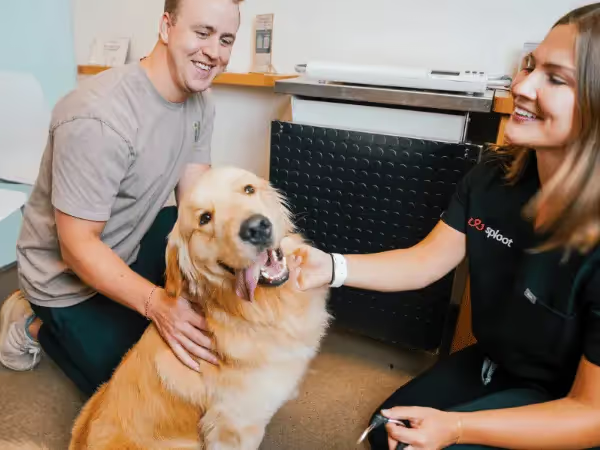
Be Extra Prepared for Pet Emergencies & Boost Your Pet’s Health with SplootPack™
Save hundreds on vet care and get added peace of mind for your pet’s illnesses & emergencies. The SplootPack™ membership helps you save up to $600+ on essential veterinary care.
This membership offers benefits for not only health-boosting preventive care but also life-saving urgent care and emergency vet services at Sploot!
Get 3 waived wellness exams or check-ups, 10% OFF on all Sploot’s services, exclusive discounts, and more!


